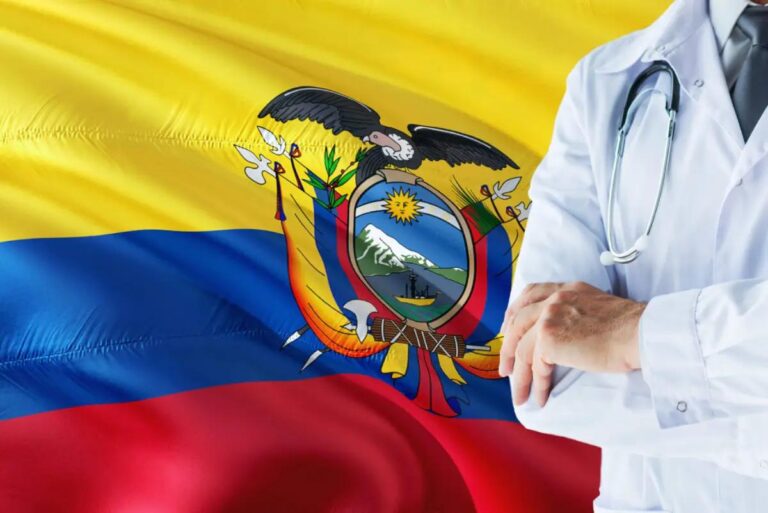TL;DR:
- Public Hospitals: Free but often face long wait times and limited resources
- Private Healthcare: Better services, shorter wait times, modern equipment, affordable.
- Quality: Private care in cities like Managua and Granada is excellent; public hospitals less reliable.
- Accessibility: Better in cities, fewer options in rural areas.
- Costs: Public hospitals free; private care affordable, out-of-pocket unless insured.
- Bilingual Staff: Common in private hospitals, rare in public.
- Affordability: Much lower medical costs than many other countries.
- General Practitioner Visit: ~$30; Specialist Visit: $50-$100; Prescriptions: <$20.
- Insurance: Local (~$100/month) and international options.
- Preventative Care: Regular screenings, mobile healthcare services.
- Specialists: Available in fields like cardiology, orthopedics, geriatrics.
- Long-term Care: Several senior living options with comprehensive services.
- Additional Services: Dental care, well-stocked pharmacies.
Thinking of retiring in Nicaragua but worried about the healthcare? You’re not alone. Many wonder if Nicaragua’s medical services can truly support their golden years. In this post, I’ll break down the public and private healthcare options, discuss costs, and explore the quality of care. We’ll also look at additional health and wellness services. Let’s dive in and see if Nicaragua is the right fit for your retirement health needs.
What are the Public and Private Healthcare Options for Retirees in Nicaragua?
Are hospitals free in Nicaragua? Yes, public hospitals in Nicaragua are free for all. However, they often face issues like long wait times and limited resources. Public hospitals focus on basic care but may lack advanced treatments and modern equipment.
Healthcare in Nicaragua for expats is a mix of public and private options. The private sector is more advanced. Private clinics in Nicaragua offer better services and shorter wait times. They have modern equipment and comfortable settings.
Does Nicaragua have good medical care? It depends on where you go. Public hospitals can be less reliable. For better care, many retirees choose private healthcare. Private clinics and hospitals in cities like Managua and Granada provide excellent care.
Quality and accessibility of healthcare services for retirees in Nicaragua vary. If you live near a city, you will have access to top public and private hospitals. In rural areas, options are fewer and the quality lower.
Costs associated with public versus private medical care also differ. While public hospitals are free, private care has costs. Doctors’ visits and treatments in private clinics are affordable compared to the United States. You pay out-of-pocket unless you have private insurance.
Bilingual healthcare staff availability in both sectors is common in private hospitals. Many staff speak English, which makes it easier for retirees. Public hospitals may not have as many English speakers. For retirees, private care often means better communication and comfort.
For more details on healthcare infrastructure in Nicaragua, check this resource.
How Affordable is Healthcare in Nicaragua for Retirees?
Healthcare affordability in Nicaragua is excellent for retirees. Medical costs in Nicaragua are much lower compared to many other countries.
Breakdown of Healthcare Expenses
Visits to a general practitioner cost around $30 per visit. Specialist visits range from $50 to $100. Prescription medications can be very affordable, often costing less than $20.
Health Insurance Plans
There are two types of health insurance plans available. You can choose local insurance, which costs around $100 per month. Another option is international insurance that offers wider coverage but at higher costs.
Comparison with Other Destinations
Compared to Costa Rica or Panama, healthcare costs in Nicaragua are significantly lower. For instance, a doctor’s visit in Costa Rica might cost you $50 to $60.
Factors Influencing Affordability
Numerous factors impact healthcare affordability in Nicaragua. Lower wages for medical personnel and cheaper overheads make healthcare more affordable.
Affordable Providers and Services
Many hospitals and clinics provide good care at reasonable rates. For example, the Vivian Pellas Hospital in Managua is known for its quality services.
To learn more about healthcare services and providers, you can check out these affordable healthcare providers, which offer detailed listings.
What Additional Health and Wellness Services are Available for Retirees in Nicaragua?
Preventative care and wellness programs are key for retirees. In Nicaragua, many clinics offer regular screenings. This includes checks for blood pressure, diabetes, and cholesterol. Staying ahead with these services can prevent bigger issues.
Mobile healthcare services are also common. They bring medical care to your home. For seniors, this means less travel and more comfort. Nurses and doctors visit, making life easier.
When it comes to specialist doctors, Nicaragua has a range. Experts in fields like cardiology, orthopedics, and geriatrics are available. Many have trained abroad and speak English. This ensures you get top-notch care without language issues.
Long-term care facilities are crucial for those needing constant care. Nicaragua has several senior living options. These come with 24/7 nursing, meal services, and recreational activities. This helps retirees maintain a good quality of life.
There are also complementary health services like dental care and pharmacies. Dentists offer everything from cleanings to dentures. Pharmacies are well-stocked with both local and foreign medicines. You can find most medications without issue.
In short, Nicaragua provides diverse healthcare options for retirees. From mobile services to specialists, you are covered. Understanding these options can make your retirement healthier and happier. For more detailed information, you may visit this Nicaraguan health services guide.
Conclusion
Nicaragua’s healthcare system offers numerous options for retirees. Deciding between public and private care depends on your needs and budget. Both sectors provide quality and accessible services, with costs varying significantly. Bilingual staff are available, enhancing communication. Additionally, healthcare remains affordable, and various insurance plans can further lower costs. Wellness programs, mobile services, and specialist care cater to retirees’ specific needs. Embracing these resources allows for a healthier, happier retirement in Nicaragua. Consider your personal preferences and choose the healthcare option that best fits your life abroad.












